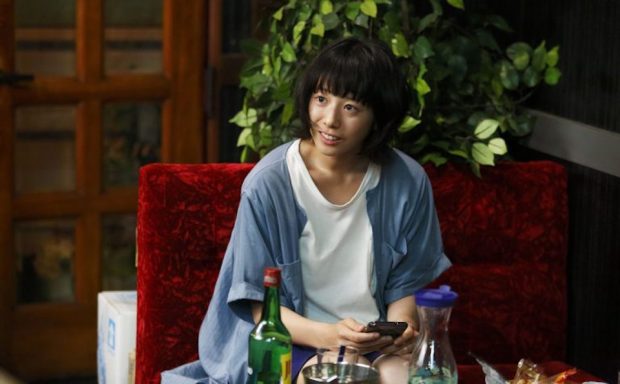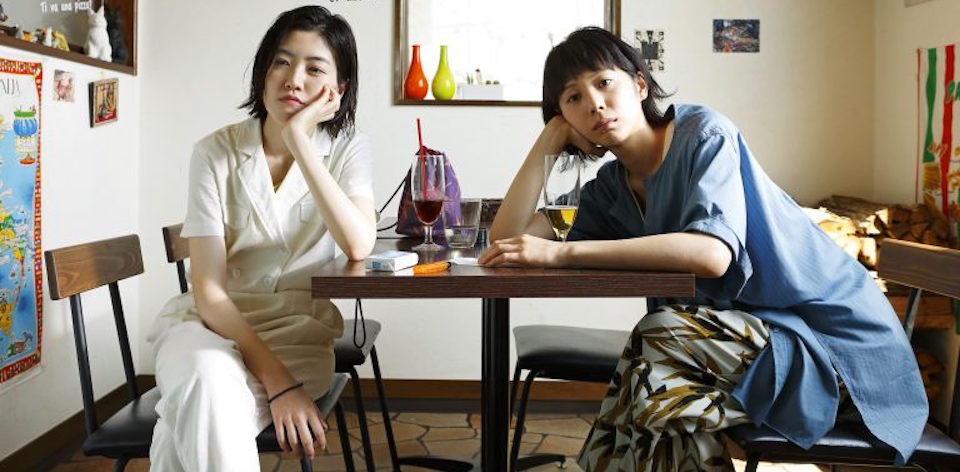Yuko Hakota’s debut film clearly has a personal story to tell in her debut feature BLUE HOUR (ブルーアワーにぶっ飛ばす), using her hometown of Ibaraki Prefecture in the Kantō region of Honshu as the backdrop for her first film. Yet even through her self-reflection, there’s universality to be had in this journey home.
Like her lead character, Hakota also began her career directing television commercials. In the film, Sunada (Kaho) is working as a director in Tokyo, spending her nights drinking and partying in what appears to be a self-destructive pattern. On a whim, she takes off for Ibaraki with her extroverted friend Kiyoura (Shim Eun-kyung).
“I don’t like people who like me,” explains Sunada, and we watch as she carefully surrounds herself with a protective barrier that has kept people at arm’s length. Her marriage is devoid of conflict, but is also kept in check by an unwillingness to go beyond surface ritual. She hasn’t seen her family in years. Yet the film explores how turning points in life, such as a 30-something crisis, can lead you to draw people back into your orbit.

Kaho, known for Our Little Sister and more recently My Friend ‘A’, gives a complex performance that is a long way from the “wide-eyed, pure-hearted innocent” typecasting that The Japan Times‘ Mark Schilling identified almost a decade ago. Reflecting on her youth, we learn that Sunada was taught to be unsentimental as a kid. With each piece of the puzzle we’re presented, Kaho incorporates another little layer into the overall onion. Korean actress Shim Eun-kyung (Psychokinesis) is simply a delight, viewing all of the events through a ubiquitous handheld camera. Veterans Denden and Kaho Minami bring some added gravitas to the picture as well.
Ryûto Kondô’s photography brings the same understated warmth to the picture that he exhibited in Shoplifters, whether it is the flickering blue filter of her youth or showcasing the landscapes of Ibaraki. Nao Matsuzaki’s score is equally subdued, punctuated as it is by Japanese rock and pop songs.
While there is a certain understated quality overall to BLUE HOUR, and the emotional turn of the conclusion might be a little neat, there is an intangibly heartwarming quality that will undoubtedly resonate with huge cross-sections of audiences. It’s not often you get to witness the arrival of a strong new voice on the scene, but Yuko Hakota marks herself as a filmmaker to watch.
2019 | Japan | DIR: Yuko Hakota| WRITERS: Yuko Hakota | CAST: Kaho, Shim Eun-kyung, Denden, Kaho Minami | DISTRIBUTOR: Bitters End (JPN), JAPAN CUTS (US) | RUNNING TIME: 92 minutes | RELEASE DATE: 11 October 2019 (JPN), 19 – 28 July 2019 (JAPAN CUTS)






